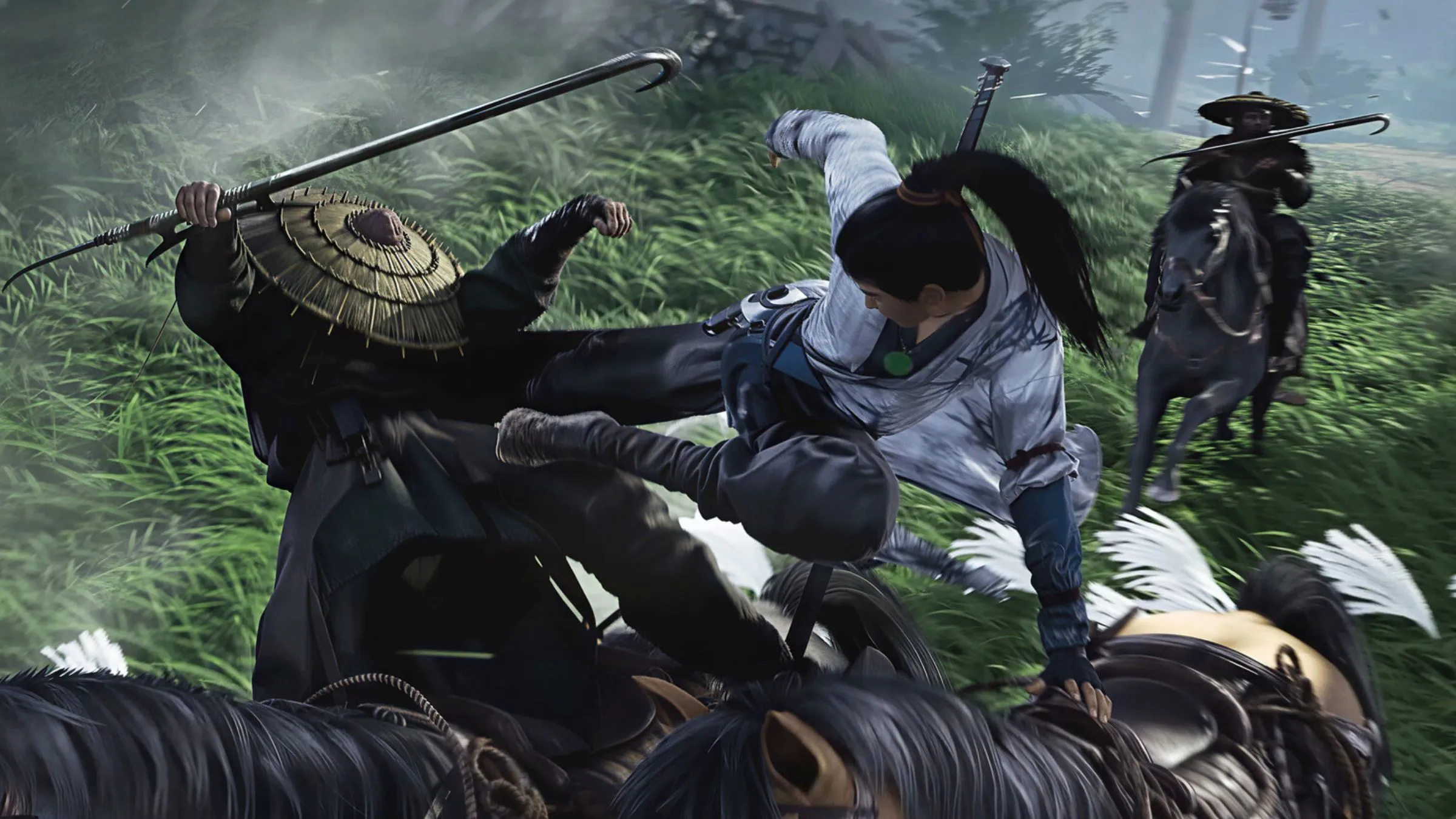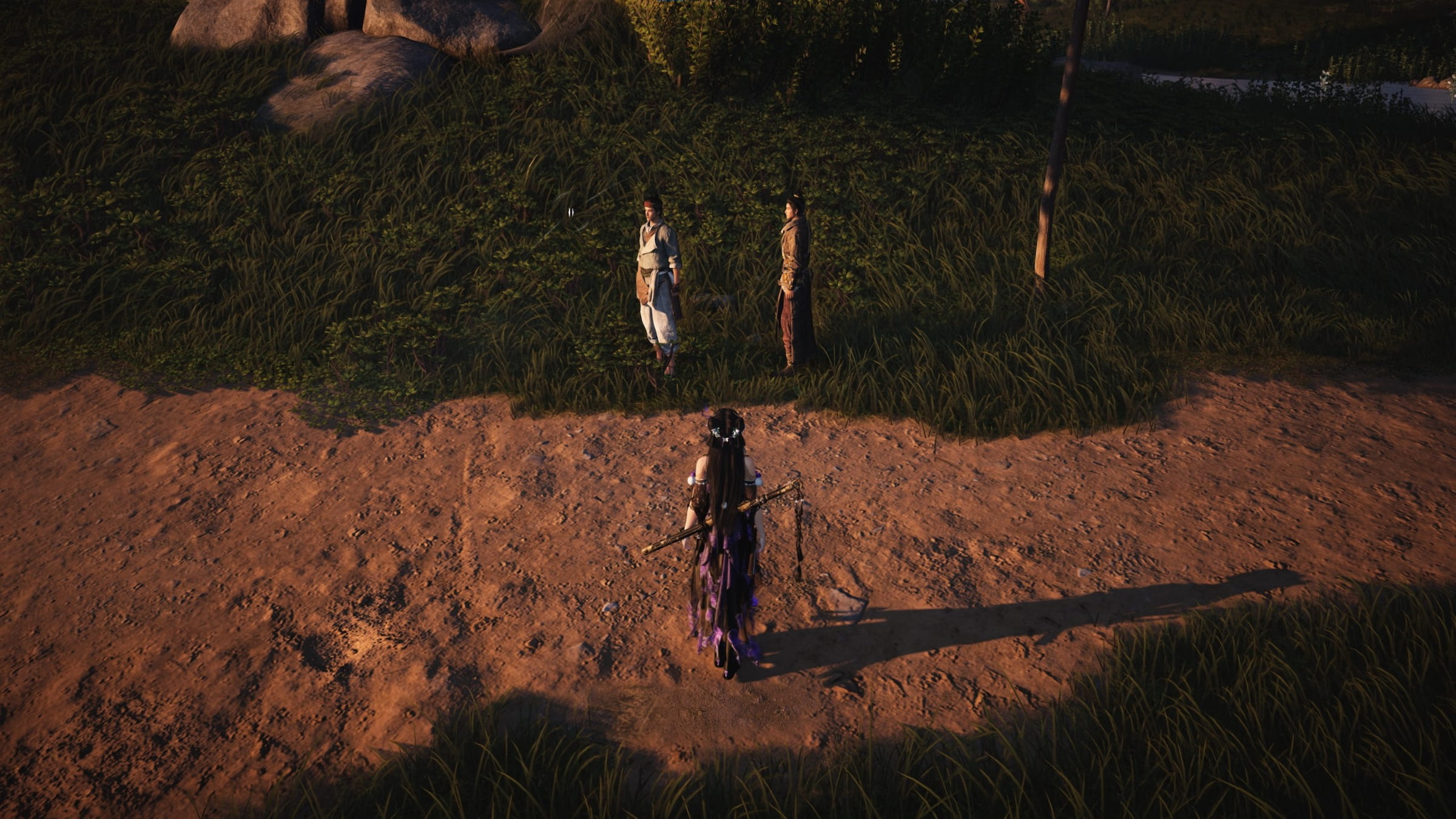
A key part of any great role-playing game is the freedom to explore, but open-world games can become predictable. After playing a few, you often find yourself rushing through towns and ignoring the people in them, because most characters don’t really add to the experience. Modern RPGs often treat characters as simply background details. Even when they do offer something helpful, it’s usually found through a quest marker or a simple dialogue choice, making interactions feel shallow. These game worlds are getting larger, but the characters within them often feel like lifeless objects instead of being truly involved in the adventure.
Unlike many games, Where Winds Meet offers a surprisingly engaging AI-powered chat system for its characters. This system encourages players to take their time and actually talk to the people they encounter – even those in seemingly unimportant locations like streets and marketplaces. While it doesn’t immediately grab your attention, the more you use it, the clearer it becomes why it’s special. It injects a welcome element of surprise and makes exploring the game world much more interesting, helping to avoid the repetitive feeling common in RPGs.
Why AI NPC Chats Feel So Different From Standard Dialogue

Many role-playing games use set dialogue options, which work but can feel limiting – you usually just choose from a few pre-written lines. Where Winds Meet still has some of those options, but it also lets you have open-ended conversations with characters using an AI chat system. While the system is still controlled, it feels much more realistic, like you’re actually talking to a person instead of selecting from a list of phrases. This difference is immediately noticeable, as conversations don’t follow the usual, predictable patterns.
This system really encourages you to explore and ask questions. Unlike games with limited dialogue options, you can ask characters anything that makes sense for the situation – like where they’ve been, what they’re up to, or even what they fear. Their reactions are unpredictable; sometimes they get nervous, and other times they share surprising information. Conversations feel open-ended and don’t force you down a specific path. You can freely investigate, try different approaches, and bring up topics you wouldn’t normally see in a typical game. This small change makes the world feel much more alive and engaging.
The game also alters how you interact with the world around you. While Where Winds Meet is already rich in detail, its AI chat system makes the characters feel like more than just background scenery. A simple villager could offer a helpful shortcut, or a traveler might reveal a hidden location. Even if the conversation doesn’t lead anywhere important, it still creates a meaningful connection that enhances the game’s atmosphere. It’s not flawless – you can sometimes steer conversations into unrealistic territory – but the concept has a lot of potential for growth, both in Where Winds Meet and in games to come.
The Surprise Moments That Come From Freeform Conversations
The best part of this feature is how unpredictable it is. It lets you take conversations in unexpected directions that can genuinely impact the outcome. These interactions can be humorous, strange, stressful, or even surprisingly helpful – maybe someone casually reveals a secret route to treasure, or someone cracks under pressure and lets slip a crucial clue. These small moments add up, making the world feel alive and responsive, like the people you meet actually have lives beyond interacting with you.
In Where Winds Meet, you can even be aggressive with characters, and the game responds realistically. Threatening someone might make them flee, call for help, or even attack you. It can also be a useful tactic – if they’re hiding something, they might reveal a secret. The game isn’t encouraging cruelty, but it does recognize that people react to different kinds of communication. It’s unusual for a role-playing game to make social pressure feel like a genuine gameplay mechanic, instead of just a dialogue choice.
What’s really impressive is how natural these conversations feel. They aren’t part of any main storyline, and they don’t push you towards specific outcomes. The feature truly stands out in those little, everyday interactions – a brief chat while crossing a bridge, a slightly awkward conversation near a camp, or a surprisingly friendly talk with someone who offers useful advice. These moments give the world a unique personality that scripted dialogue can’t achieve. Even players who usually skip talking to minor characters might find themselves checking in with people, just to see what they have to say and avoid missing anything interesting.
What do you think? Leave a comment below and join the conversation now in the ComicBook Forum!
Read More
- Clash Royale Best Boss Bandit Champion decks
- Mobile Legends January 2026 Leaks: Upcoming new skins, heroes, events and more
- Vampire’s Fall 2 redeem codes and how to use them (June 2025)
- Clash Royale Furnace Evolution best decks guide
- Best Hero Card Decks in Clash Royale
- Mobile Legends: Bang Bang (MLBB) Sora Guide: Best Build, Emblem and Gameplay Tips
- Best Arena 9 Decks in Clast Royale
- Clash Royale Witch Evolution best decks guide
- Dawn Watch: Survival gift codes and how to use them (October 2025)
- Brawl Stars December 2025 Brawl Talk: Two New Brawlers, Buffie, Vault, New Skins, Game Modes, and more
2025-11-22 00:42